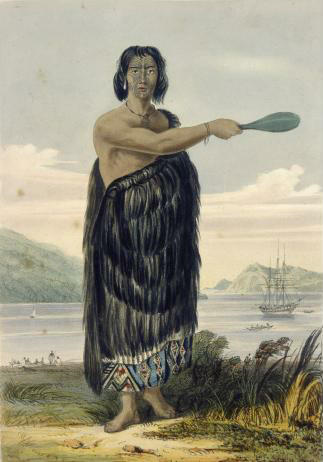 TE ŌHĀKĪ A TE WHAREPŌURI I muri nei, kia pai ki aku taonga Māori, taonga Pākeha, kia tae ake te haruru o tō reo ki ahau i te Reinga. After I have gone, be good to my Māori and my European people, let the thunder of your voice reach me in the spirit land. Our purpose Statement for engagement with Mana WhenuaKia haruru te reo o {Te Ātiawa} as mana whenua in our Kāhui by honouring the past and empowering the present to shape the future. As part of our celebration of Te Wiki o te Reo Māori we would like to share with you a new website designed especially for you as a member of Capital City Kāhui Ako. The purpose of the site is to house all our resources related to engagement with local iwi. You can check out the site here. You will find links to our local iwi websites, key resources that have been shared with us by various members of our local iwi, as well as examples of practice happening across our kāhui ako. As part of the final Community of Practice: Our Place, Our Stories, kaiako collaborated together around developing ideas of ways in which local histories, pūrākau, and contexts could be implemented in our akomanga. We have collated these as a koha for you from that rōpū. Under the Community of Practice tab, there is a list of ideas that you could try out, depending on the age and stage of your ākonga.
0 Comments
Ko te reo te taikura o te whakaao mārama!
Language is the key to understanding! We are excited to be able to celebrate te reo Māori in a special way this week - and to be intentional in speaking te reo Māori as often as we can. We want to take this opportunity to encourage you to set yourself a personal wero (challenge) this week, to add a new phrase to your kete of language. Here are some great kiwaha that you could try: Me he tē! (Like a boss) Karawhiua (Give it heaps) Tau kē! (Awesome) Tūwhitia te hopu, mairangatia te angitū! (Feel the fear and do it anyway) Te mutunga kē mai o te pai! (Beyond amazing) Ka mau te wehi! (how amazing!) Link here for Te Wiki o te Reo Māori pānui. Learner Agency
Learner Agency, particularly in the context of education in New Zealand (Aotearoa), is about empowering students to take an active and self-directed role in their own learning. This approach emphasises their ability to make choices, set goals, and take ownership of their learning journey. Student agency is rooted in the principle that students have the ability and the will to positively influence their own lives and the world around them. The concept of co-agency recognises that students, teachers, parents and communities work together to help students progress towards their shared goals (OECD, 2019). A big thank you to all the participants of the COP for diving into the Final Research Report on Learner Agency from Tātai Aho Rau - Core Education and summarising the key points. Your efforts have given us a clearer understanding of Learner Agency within our Kāhui Ako. I also want to acknowledge that we have started developing a common language around Learner Agency. This was a crucial first step, and it's fantastic to see how it's allowed us to progress and align our efforts. Here's a list of common vocabulary connected to Learner Agency in Aotearoa: Remember that these terms are interconnected and often overlap, reflecting the holistic nature of Learner Agency in the context of education in Aotearoa. Learner Agency: The concept of students being actively involved in their learning, making decisions, and taking responsibility for their educational path. Whakapapa: Genealogy, ancestry, and connections. In the context of learner agency, it can refer to understanding one's own educational history and cultural roots. Tino Rangatiratanga: Self-determination or sovereignty. In education, it refers to students having the autonomy to make choices about their learning. Whānau: Extended family, community, or support system. It underscores the importance of involving families and communities in a student's learning journey. Tuakana-Teina: Reciprocal teaching and learning, where older students (tuakana) guide and support younger ones (teina). Curriculum Design: Creating learning experiences that allow students to pursue their interests, passions, and strengths while meeting educational goals. Personalised Learning: Tailoring learning experiences to the individual needs, preferences, and pace of each student. Goal Setting: Encouraging students to set both short-term and long-term learning goals, fostering a sense of direction and purpose. Reflection: Regularly reviewing one's learning experiences, progress, and challenges to enhance self-awareness and growth. Student Voice: Providing opportunities for students to express their opinions, preferences, and ideas about their learning environment and experiences. Choice and Autonomy: Giving students the freedom to choose topics, projects, and methods of learning that resonate with them. Inquiry-Based Learning: A student-centred approach where learners explore questions, problems, or topics of interest, promoting curiosity and critical thinking. Self-Assessment: Encouraging students to evaluate their own work, identifying strengths and areas for improvement. Collaborative Learning: Working together with peers on projects, discussions, and activities that foster shared learning and diverse perspectives. Cultural Responsiveness: Recognising and valuing diverse cultural backgrounds, and incorporating different worldviews into the learning experience. Ownership: Empowering students to take ownership of their learning process, fostering a sense of responsibility and commitment. Feedback Loop: Establishing a continuous cycle of feedback between students and educators to enhance learning outcomes. Digital Fluency: Developing skills to effectively navigate and utilise digital tools for learning and communication. Metacognition: Encouraging students to think about their own thinking, helping them become more aware of their learning strategies and processes. Well-being: Prioritising the holistic development of students, including their physical, emotional, and mental well-being. Cultural Capital: Recognising and leveraging students' cultural experiences and backgrounds as valuable assets in their learning journey. Empowerment: Enabling students to feel capable, confident, and empowered to make decisions about their learning and future. Our journey has also seen the creation of a continuum of practice surrounding Learner Agency within our Kāhui Ako. The ideas and discussions shared during our sessions have established an initial foundation, and I'm confident that, as a collective, we'll contribute significantly to the development of this continuum. Once again, I extend my gratitude for the dedication and hard work throughout our four sessions. I eagerly anticipate the next steps in our collective journey and the positive impact we'll continue to make. Link to session slides that include the work done during the workshop. I wanted to share some key takeaways from our 3rd Capital City Kāhui Ako - Learning in Aotearoa - Community of Practice, held yesterday.
Nathan Riki from Riki Consultancy led the session, and it got us all thinking deeply about our kura and learning spaces. Nathan posed a powerful question: "How would I even know your school/classroom was even in Aotearoa?" This made us reconsider and consider how well our educational environments genuinely embrace the essence of Aotearoa New Zealand. We explored how our places of learning look, sound, and feel. It was an opportunity that allowed us to notice the details that ensure our Tamariki Māori can see, hear, and feel their culture within our classrooms and schools. Creating an environment that celebrates their cultural identity is crucial for their sense of belonging and success as Māori. We discussed the value of incorporating te reo Māori, tikanga, and Māori perspectives into our design of learning, giving Tamariki Māori opportunities to grow in their Māoritanga. This not only benefits them but enriches the experiences of all our students, fostering understanding and mutual respect among our diverse community. As we move forward, let's carry these reflections into our practice and continue nurturing inclusive and culturally responsive classrooms and schools. By celebrating our cultural heritage, we can empower all our Ākonga to thrive and succeed. Ngā mihi nui to Nathan Riki for his Wero. We appreciate his guidance and the opportunity to learn together as a community. Looking forward to our next gathering on Thursday 31 August. Slides for session #3 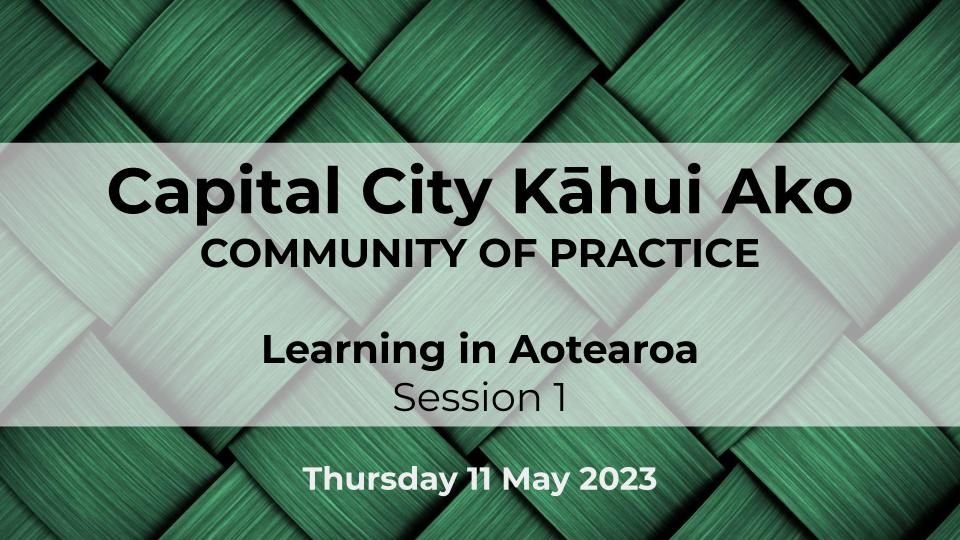 In our first session, we embarked on delving into the core aspects that contribute to the collective capacity of our schools. Together, we explored our individual values and beliefs about teaching and learning, recognising the impact they have on our educational environment. Engaging in robust kōrero, we discussed the creation of team norms and the vital importance of regularly revisiting them. We then explored the concept of Radical Candor, which calls for caring deeply while challenging one another to address issues directly when they arise. As we concluded the session we took a moment to reflect on the fundamental question: "What is the Why of our School?" Each of us pondered the unique purpose and mission that drives our respective schools. Moving forward to session 2, we engaged in an interactive and dynamic experience that left us inspired and energized. Together, we tackled three fictitious scenarios, drawing on our expertise and perspectives to collaboratively find innovative solutions. Our focus encompassed pedagogy, the learning environment, and the design of learning itself. The session concluded with a vibrant exchange of ideas and insights. Nathan then shared systems and structures aimed at empowering greater agency in our Ākonga, ensuring they have the tools and support necessary to become active participants in their own learning journeys. We look forward to the 2 upcoming sessions, where we will continue to explore and evolve our practices, leveraging the power of our collective wisdom. SUPERHUI WITH TE ĀTIAWA Harbourside at Te Wharewaka o Pōneke, Neavin Broughton offered us whakaaro on telling stories, and a framework based on Māui and his whānau for examining identities. After yum kai, we ventured out on haerenga around Te Whanganui-a-Tara, to explore important sites, to learn new skills or to practice our reo. We ended the day thinking through our own practice and our next steps in our local curriculum space. It was a chance for us to connect, inquire, and reflect on our whakawhanungatanga as a Kāhui Ako, and with Te Ātiawa as one of our mana whenua in this rohe. Ché Hancock joined our management team at the end of last year to represent our 11 ECEs. Che is Kaiwhakahaere / Senior Head Teacher at Owhiro Bay Kindergarten and brings passion and fresh energy to the role.
Our first ECE Connect for the year was hosted by Newtown Kindergarten. This meeting gave kaiako from different centres a chance to get to know each other or catch up with old friends as well as to hear about what’s going on in our Kāhui Ako. We look forward to more Connect events coming up through the year. We recognise the importance of our commitment to Te Tiriti o Waitangi, and have done a lot of mahi to upskill our staff across the kāhui ako in this space, however this has been through the lens of decolonisation, and has up until now been a “one size fits all” approach. We recognise that this journey can be challenging for our māori staff, and that this work is deeply personal to you and your whānau, and would like to provide a space where you can navigate your response to what has happened in Aotearoa, and how it affects you.
We are providing a personalised programme for any kaimahi Māori throughout our kāhui ako designed to support, encourage and strengthen you - run by Māori for Māori. Attendance in these sessions will remain voluntary. This programme will be facilitated by Nathan Riki and Janelle Riki-Waaka, and is for anyone who identifies as Māori throughout our Kāhui Ako - whether they be teachers, teacher aides or support staff.The mahi will begin with a full day Wānanga, and then be followed by way of a fortnightly wānanga (either online or kanohi ki te kanohi) of approximately 1.5 hours - fully responsive to your needs. We will be meeting at Newtown School - and kai will be provided for the day. Ongoing wānanga times will be discussed and agreed upon when you are all together. If you are yet to register, please register your attendance for our first Wānanga: Term 2: Thursday 4 May 9am to 3pm - REGISTRATION LINK HERE Whakamana i te Tiriti o Waitangi
Embodying Te Tiriti o Waitangi in your teaching practice Janelle Riki-Waaka, our keynote presenter, was outstanding and her kōrero around success is one that is both challenging and inspiring, and certainly contained some “wedgie” moments! Success as Māori (vs Success of Māori) encourages schools and kaiako to look at how to grow in their Māoritanga. Engaging with our school whānau to identify what success of their tamariki means to them is important. Janelle suggested a greater focus on Māori forms of giftedness can enable schools to reframe perceptions of Māori achievement and intrinsic value. Janelle has shared her slides with us - we encourage you to go back and revisit the slides, either in your teams or as a whole school, and take some time to reflect on the statements that resonated or challenged you in some way. Remember - one small action can make a big difference! What you do matters. Iti noa ana, he pito mata. With care, a small kūmara will produce a harvest. We are excited to be meeting with you on Monday (1st August) at our Kāhui Ako Super Hui and are looking forward to connecting together.
At the end of our last Super Hui we were left with a wero from the words of Maya Angelou: "Do the best you can until you know better; then when you know better, do better." We took some time to reflect and come up with an action in order to be able to "do better". Please come ready to share about the action you have taken, and any impact you may have seen on your ākonga. Here is the programme for the day. Information you need to know: There is no need to sign in - you have been registered as part of your school or Centre. Venue: Wellington High School Timata: Afternoon tea served from 2.30pm, doors to hall open 2.45pm. Please say your own karakia mo te kai on arrival - one will be on display. Please also refrain from taking food into the hall so we can remain masked when we are all together. Mutunga: 5pm Bring - yourself, listening ears, open hearts, a smile and a face mask! here to edit. |
Our Termly NewsletterS2019 Retrospective
Archives
September 2023
|
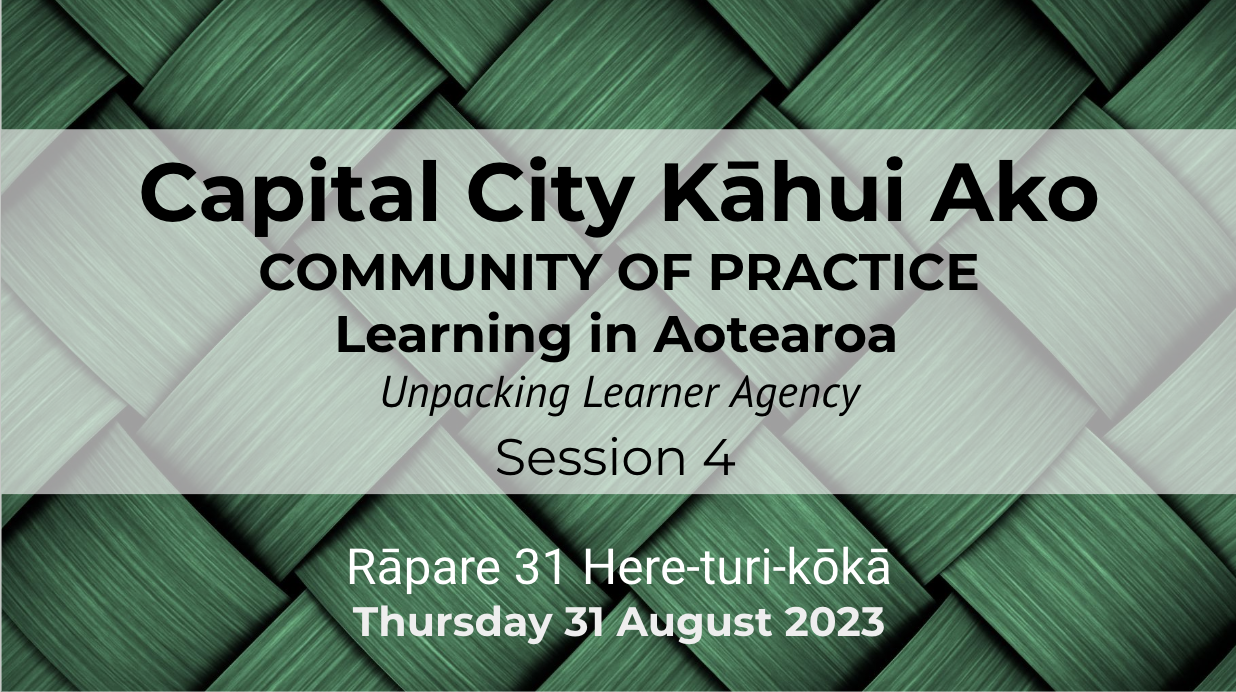
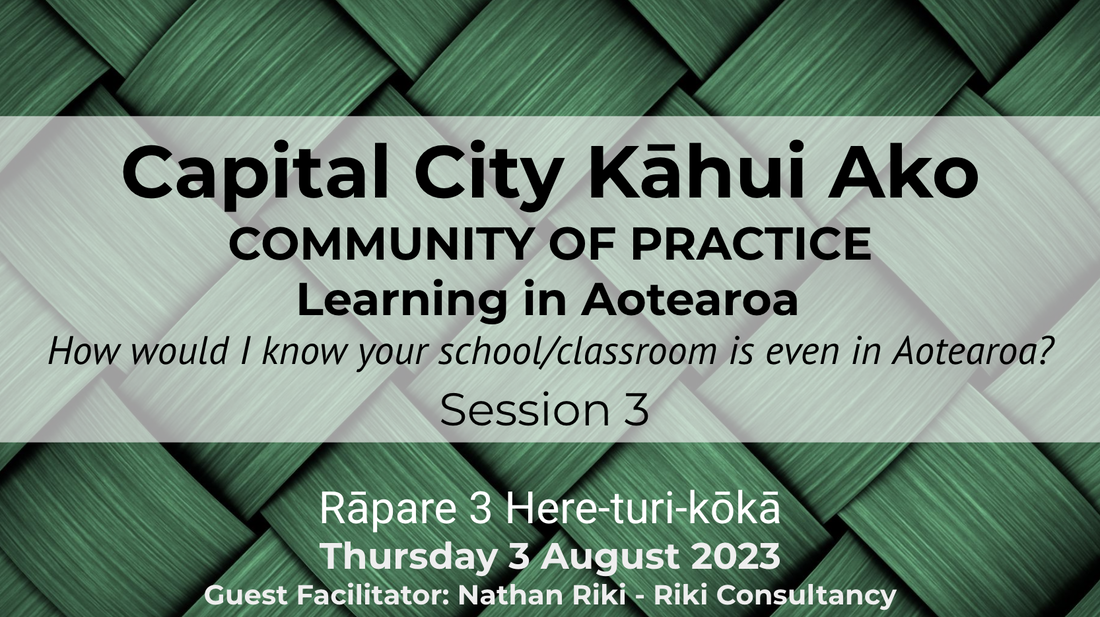
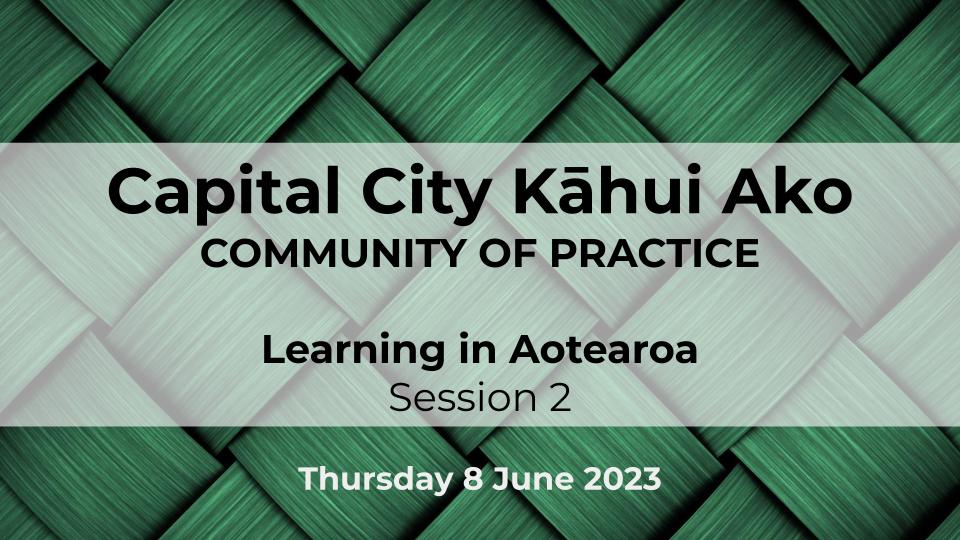
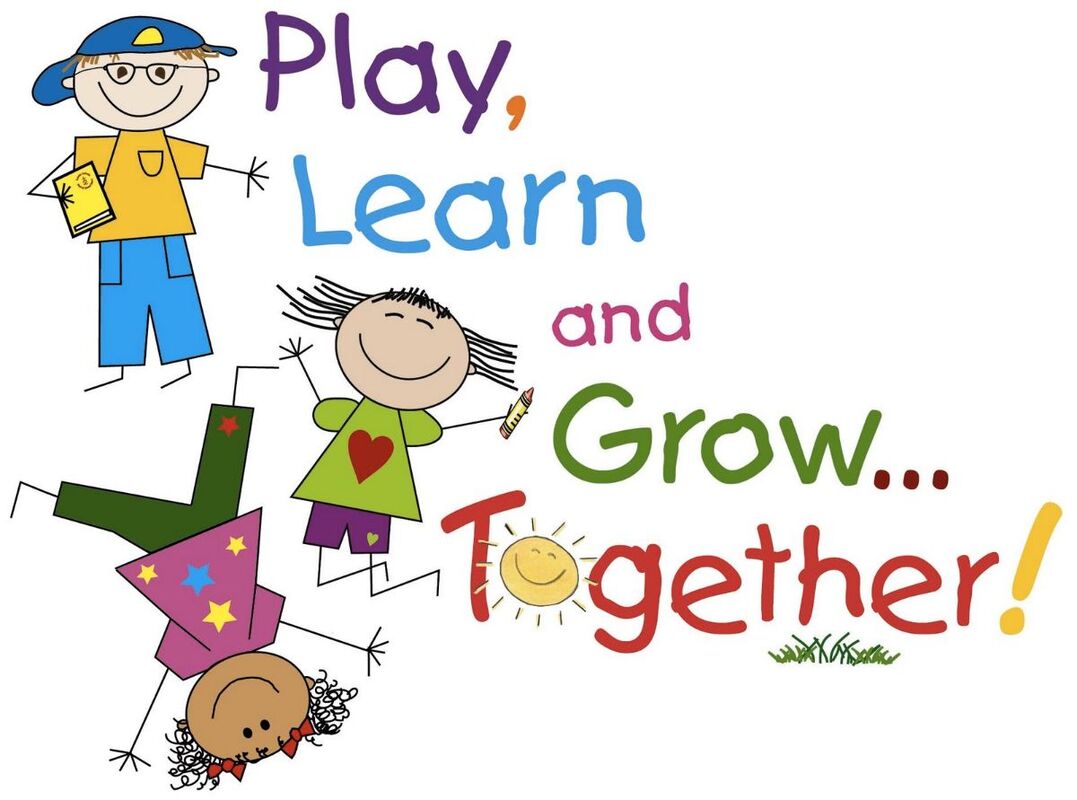
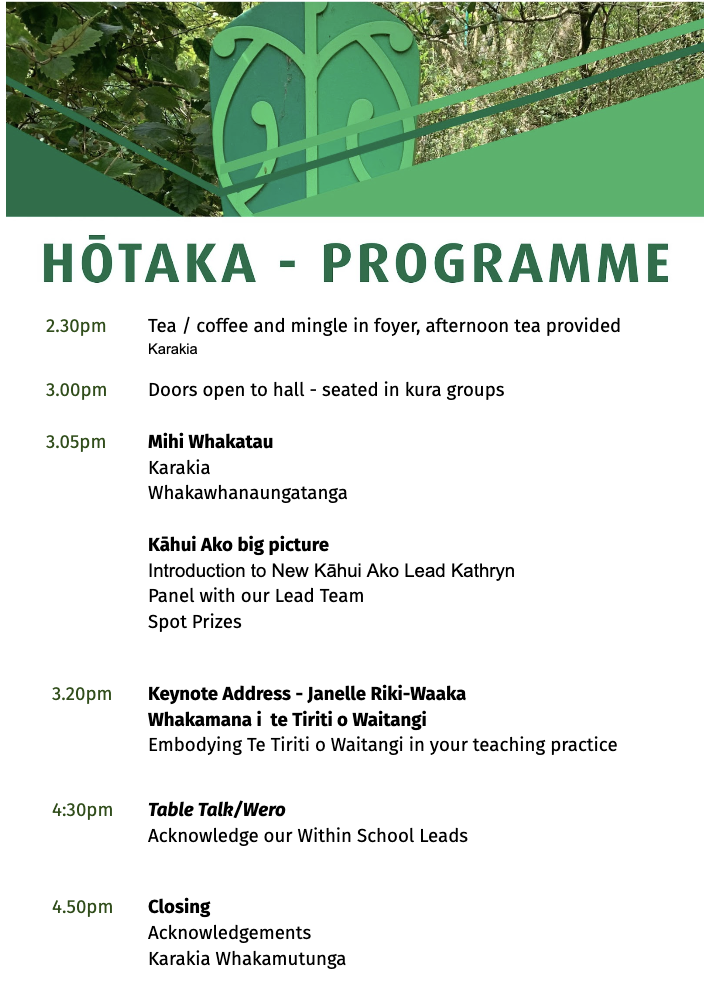
 RSS Feed
RSS Feed
